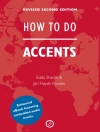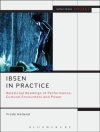Throughout the 1960s until her untimely death in 1974, Afro-Cuban filmmaker Sara Gómez engaged directly and courageously with the social, political, economic, and cultural transformations promised by the Cuban Revolution.
Gómez directed numerous documentary films in 10 prolific years. She also made De cierta manera (One way or another), her only feature-length film. Her films navigate complex experiences of social class, race, and gender by reframing revolutionary citizenship, cultural memory, and political value. Not only have her inventive strategies become foundational to new Cuban cinema and feminist film culture, but they also continue to inspire media artists today who deal with issues of identity and difference. The Cinema of Sara Gómez assembles history, criticism, biography, methodology, and theory of Gómez’s work in scholarly writing; interviews with friends and collaborators; the film script of De cierta manera; and a detailed and complete filmography.
Featuring striking images, this anthology reorients how we tell Cuban cinema history and how we think about the intersections of race, gender, and revolution. By addressing Gómez’s entire body of work, The Cinema of Sara Gómez unpacks her complex life and gives weight to her groundbreaking cinema.
Inhaltsverzeichnis
Introduction: New Women, Old Worlds, by Susan Lord
1. We have a vast public . . . .‘: Interview for Pensamiento Critico by Sara Gómez Yera
2. ‚Sara is so very Sara!‘: Inés María Martiatu Terry Interviewed by Lourdes Martínez-Echazábal, by Inés María Martiatu Terry and Lourdes Martínez-Echazábal
3. Inquisitive Gazes: Sara Gómez’s Perspectives on Social Marginality from and within the Cuban Revolution, by Odette Casamayor-Cisneros
4. Sergio Giral Interviewed by María Caridad Cumaná, by Sergio Giral and María Caridad Cumaná
5. ‚Neither Farms nor Coffee Plantations . . .‘: Urban Spaces and Cultural Contours in the Script and on the Screen, by Víctor Fowler Calzada
6. Residential Miraflores: (Script for De cierta manera/One way or another), by Sara Gómez Yera and Tomás Gonzalez
7. Luis García Mesa Interviewed by Lourdes Martínez-Echazábal and María Caridad Cumaná, by Luis García Mesa, Lourdes Martínez-Echazábal, and María Caridad Cumaná
8. Sara Gómez: Afro Cubana (Afro-Cuban Women’s) Activism after 1961, by Devyn Spence Benson
9. Racial Identity and Collisions: Gómez and Guillén Landrián, by María Caridad Cumaná
10. Rigoberto López Interviewed by Victor Fowler Calzada, by Rigoberto López and Víctor Fowler Calzada
11. Information and Education: Sara Gómez and Nonfiction Film Culture of the 1960s, by Joshua Malitsky
12. Virtual Heroes in the Midst of Shortage: Sara Gómez Confronts the New Man, by Ana Serra
13. Iván Arocha Montes de Oca Interviewed by Ricardo Acosta, by Iván Arocha Montes de Oca and Ricardo Acosta
14. Sabor and Punctum: Music in Sara Gómez’s Films, by Alan West-Durán
15. The Santiago of Two Pilgrims: F. G. Lorca and Sara Gómez in Search of Eastern Cuba, by Lourdes Martínez-Echazábal
16. Her Contribution, by Sandra Abd’Allah-Alvarez Ramírez
17. Conclusion: Transculturation, Gender, and Documentary, by Susan Lord
Epilogue: ‚As time goes by, we are less of a polite, aesthetic, static, sexual, and passive object . . .‘: Sara Gómez Yera Interviewed by Marguerite Duras
Filmography
Index
Über den Autor
Susan Lord is Professor of Film and Media in the Cultural Studies Graduate Program and Director of the Vulnerable Media Lab at Queen’s University. She is co-editor of Killing Women: The Visual Culture of Gender and Violence; New World Coming: The Sixties and the Shaping of Global Consciousness; and Fluid Screens, Expanded Cinema. As a member of the editorial collective for the journal Public: Art, Culture, Ideas, she has co-edited the issues ‚Havana‘ and ‚Archive/Counter-Archives‘. María Caridad Cumaná taught Film and Television at the University of Havana for 15 years. She was Chief Coordinator for the Audiovisual Portal for Latin American and Caribbean Cinema at the Foundation of New Latin American Cinema, co-authored A Look at Cuban Cinema, Latitudes of the Margin: Latin American Cinema before the Third Millennium, and co-edited My Havana: The Musical City of Carlos Varela. She was Field Producer in Havana for the documentary Out My Windows (NFB). She is currently an Adjunct Faculty at Miami Dade College.












